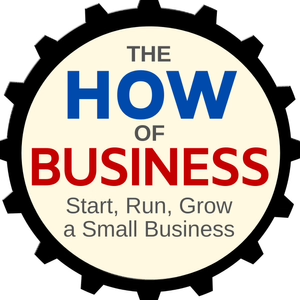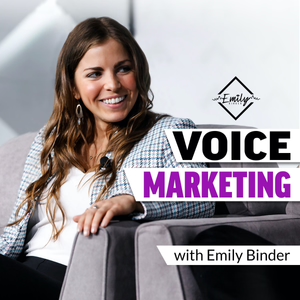
The Funding Spectrum — From Seed Financing to Private Equity
04/21/20 • 54 min
Startup LAWnchpad is the podcast that educates entrepreneurs about forming, growing and protecting a startup. Startup LAWnchpad is produced by the Entrepreneurial Law Clinic at Fordham University School of Law in New York City.
Episode Description: William de Wolff (Fordham Law ‘20) and Kei Komuro (Fordham Law ‘21) interview Robert B. Nolan, Jr. (Fordham Law ’77), Managing Partner at Halyard Capital about various stages of capital raising including seed capital, venture capital, and private equity; how to attract investors; and how to raise money for your business.
Episode Roadmap:- [:30] William de Wolff and Kei Komuro introduce themselves and Robert B. Nolan, Jr, who shares the beneficial role that legal training played into his transition from law to private equity.
- [5:06] The spectrum of funding within the world of seed capital, venture capital, and private equity, and key characteristics of each stage.
- [11:04] At what stage do investors want to see a profit from their investments?
- [12:35] The importance of receiving operational expertise and guidance, in addition to financing.
- [14:50] Common concerns of investors regarding practical, legal, market changes, and management issues, and how investors evaluate the profitability of a startup.
- [20:10] Advice regarding the concerns of entrepreneurs seeking capital through private equity.
- [27:14] Why investors need to be kept well informed by struggling entrepreneurs.
- [29:34] The value of social innovation and positive environmental, social, and governance (ESG) factors in the investment world.
- [38:42] Options beyond certified B corps or benefit corporations that companies can take advantage of to incorporate a social mission.
- [42:18] A look at the future of capital funding supporting social initiatives.
- [44:54] Mr. Nolan’s recommendations for entrepreneurs who are attempting to become investors or to get access to pools of capital, and the importance of intellectual property in attracting investors.
- “Seek more than capital when talking to investors — seek those with expertise who can help you penetrate or disrupt a marketplace.” — Robert B. Nolan, Jr.
- “Always remember the first and foremost rule with a venture capital or private equity professional is that they believe management can deliver its promise.... It’s usually based on an entrepreneur’s vision and their perception of how they will make a difference in the marketplace.” — Robert B. Nolan, Jr.
- “Investors don’t expect you to be profitable from day one, but you do need to ultimately figure out a path to profitability.” — Robert B. Nolan, Jr.
- “The best thing an entrepreneur can do for its investors is to be transparent. Be open with information and tell them in advance if you see a problem coming.” — Robert B. Nolan, Jr.
- “The opportunity to have a dream developed and nurtured is the greatest reward one can have in the business world.” — Robert B. Nolan, Jr.
- “One of the most attractive elements for an investor is the potential — let alone the realization — of intellectual property that is derived from the business idea being touted by the individual entrepreneur.” — Robert B. Nolan, Jr.
- Fordham’s Entrepreneurial Law Clinic
- Follow us on Twitter @FordhamELC
Disclaimer:
The information contained in the Startup LAWnchpad podcast and any materials associated therewith (the “Podcast”) is for educational, informational, and entertainment purposes only. It does not constitute legal advice or tax advice with respect to any particular circumstance. The Podcast is not a complete overview or analysis of the topics presented and may contain information that varies in different jurisdictions and is subject to revision, interpretation, or nullification after the date of recording. The transmission of information to you does not create a lawyer-client relationship between you and any host, guest, or their respective employer, including but not limited to Fordham University School of Law and Lincoln Square Legal Services, Inc. None of these parties shall be liable for any loss that may arise from any reliance on the Podcast. You should not rely upon...
Startup LAWnchpad is the podcast that educates entrepreneurs about forming, growing and protecting a startup. Startup LAWnchpad is produced by the Entrepreneurial Law Clinic at Fordham University School of Law in New York City.
Episode Description: William de Wolff (Fordham Law ‘20) and Kei Komuro (Fordham Law ‘21) interview Robert B. Nolan, Jr. (Fordham Law ’77), Managing Partner at Halyard Capital about various stages of capital raising including seed capital, venture capital, and private equity; how to attract investors; and how to raise money for your business.
Episode Roadmap:- [:30] William de Wolff and Kei Komuro introduce themselves and Robert B. Nolan, Jr, who shares the beneficial role that legal training played into his transition from law to private equity.
- [5:06] The spectrum of funding within the world of seed capital, venture capital, and private equity, and key characteristics of each stage.
- [11:04] At what stage do investors want to see a profit from their investments?
- [12:35] The importance of receiving operational expertise and guidance, in addition to financing.
- [14:50] Common concerns of investors regarding practical, legal, market changes, and management issues, and how investors evaluate the profitability of a startup.
- [20:10] Advice regarding the concerns of entrepreneurs seeking capital through private equity.
- [27:14] Why investors need to be kept well informed by struggling entrepreneurs.
- [29:34] The value of social innovation and positive environmental, social, and governance (ESG) factors in the investment world.
- [38:42] Options beyond certified B corps or benefit corporations that companies can take advantage of to incorporate a social mission.
- [42:18] A look at the future of capital funding supporting social initiatives.
- [44:54] Mr. Nolan’s recommendations for entrepreneurs who are attempting to become investors or to get access to pools of capital, and the importance of intellectual property in attracting investors.
- “Seek more than capital when talking to investors — seek those with expertise who can help you penetrate or disrupt a marketplace.” — Robert B. Nolan, Jr.
- “Always remember the first and foremost rule with a venture capital or private equity professional is that they believe management can deliver its promise.... It’s usually based on an entrepreneur’s vision and their perception of how they will make a difference in the marketplace.” — Robert B. Nolan, Jr.
- “Investors don’t expect you to be profitable from day one, but you do need to ultimately figure out a path to profitability.” — Robert B. Nolan, Jr.
- “The best thing an entrepreneur can do for its investors is to be transparent. Be open with information and tell them in advance if you see a problem coming.” — Robert B. Nolan, Jr.
- “The opportunity to have a dream developed and nurtured is the greatest reward one can have in the business world.” — Robert B. Nolan, Jr.
- “One of the most attractive elements for an investor is the potential — let alone the realization — of intellectual property that is derived from the business idea being touted by the individual entrepreneur.” — Robert B. Nolan, Jr.
- Fordham’s Entrepreneurial Law Clinic
- Follow us on Twitter @FordhamELC
Disclaimer:
The information contained in the Startup LAWnchpad podcast and any materials associated therewith (the “Podcast”) is for educational, informational, and entertainment purposes only. It does not constitute legal advice or tax advice with respect to any particular circumstance. The Podcast is not a complete overview or analysis of the topics presented and may contain information that varies in different jurisdictions and is subject to revision, interpretation, or nullification after the date of recording. The transmission of information to you does not create a lawyer-client relationship between you and any host, guest, or their respective employer, including but not limited to Fordham University School of Law and Lincoln Square Legal Services, Inc. None of these parties shall be liable for any loss that may arise from any reliance on the Podcast. You should not rely upon...
Previous Episode

Negotiating Convertible Note Term Sheets
Startup LAWnchpad is the podcast that educates entrepreneurs about forming, growing and protecting a startup. Startup LAWnchpad is produced by the Entrepreneurial Law Clinic at Fordham University School of Law in New York City.
Episode Description: Elizabeth Ostaszewski (Fordham Law ‘19) and Christie Yeh (Fordham Law ‘19) interview Seth Helfgott (Fordham Law ‘09), Partner at Wilson Sonsini in San Francisco, to discuss convertible notes — the most common way to raise modest amounts of capital from venture capital firms at the seed stage.
Episode Roadmap:- [:30] Elizabeth Ostaszewski and Christie Yeh introduce themselves and their guest Seth Helfgott and offer an overview of venture capital financing and convertible notes.
- [7:20] What terms should a borrower look for and what details should they focus on when obtaining a convertible note?
- [11:23] Convertible note negotiations and the role of the valuation cap.
- [17:10] Discount rates and their ideal percentages.
- [19:23] How exactly do convertible notes convert? An overview of the three most common mechanisms for conversion.
- [21:39] General terms that are considered non-negotiable by venture capitalists and the provisions that startups need to fight for.
- [27:09] Who controls amendments to convertible notes?
- [28:49] Understanding West Coast vs. East Coast convertible note negotiations and the new SAFE agreement.
- [30:59] Seth’s career advice for both entrepreneurs and lawyers.
- “Companies don’t need to focus too much on building out a financial model at this point — most venture capitalists recognize it’s really just guessing at this early stage.” — Seth Helfgott
- “You need to think about the size of the round that you are raising now and the size of the round you expect to raise before these notes convert.” — Seth Helfgott
- “Historically East Coast is more investor friendly and West Coast tends to be more company favorable.” —Seth Helfgott
- “Value your time — don’t do it for free — but there are plenty of pro-bono opportunities to get involved in.” — Seth Helfgott
- Fordham’s Entrepreneurial Law Clinic
- Follow us on Twitter @FordhamELC
Disclaimer:
The information contained in the Startup LAWnchpad podcast and any materials associated therewith (the “Podcast”) is for educational, informational, and entertainment purposes only. It does not constitute legal advice or tax advice with respect to any particular circumstance. The Podcast is not a complete overview or analysis of the topics presented, and may contain information that varies in different jurisdictions and is subject to revision, interpretation, or nullification after the date of recording. The transmission of information to you does not create a lawyer-client relationship between you and any host, guest, or their respective employer, including but not limited to Fordham University School of Law and Lincoln Square Legal Services, Inc. None of these parties shall be liable for any loss that may arise from any reliance on the Podcast. You should not rely upon the Podcast or treat it as a substitute for legal advice. You should consult a lawyer familiar with your particular circumstances and licensed in your jurisdiction for legal advice.
Next Episode

Fundraising Tips for Startups
Chloe Curtis (Fordham Law ‘19) and Daniel Salomon (Fordham Law ‘19) interview Gary R. Schall, Partner at WilmerHale, about fundraising tips for startup companies and specific tools for nailing a pitch to investors.
Episode Roadmap:- [:30] Chloe Curtis and Daniel Salomon introduce themselves and Gary R. Schall, Partner at WilmerHale. They define equity financing and highlight characteristics investors are looking for when considering an investment.
- [3:13] ‘How does company type influence the ability to secure funding?’ and other questions startups need to answer before seeking funding.
- [7:40] Pros and cons of asking friends and family for initial funding.
- [12:03] The importance of obtaining legal advice to evaluate securities law issues, at the federal as well as state level.
- [13:29] An overview of angel investors — an ideal source of funding.
- [16:58] Understanding the value — beyond money — that sophisticated investors can bring to the board.
- [21:57] Equity crowdfunding as an option for raising capital, legal obligations, and funding limits that companies need to comply with when crowdfunding.
- [29:48] Tips for approaching traditional venture capital firms and the first message you need to convey to them.
- [34:33] Particular recommendations for female and minority entrepreneurs
- [36:17] Recommendations for nailing the perfect pitch starts with stating the problem your company will solve and why they should care about it.
- [42:51] How many investors should you plan on pitching to before securing any funding? And what is the ideal timeline for making a pitch?
- [46:45] How to negotiate the amount of equity provided to investors.
- [50:15] The essentials checklist for the perfect pitch, and Gary’s top tips for maximizing your time with the investor.
- [53:58] Advice for maintaining positive relationships with investors over time.
- “There is a lot of homework you need to do before you even think about raising money.” — Gary R. Schall
- “For every security that gets issued in the United States, one of three things happens — it’s exempt under the securities laws, it’s registered with the SEC, or it’s illegal. We don’t like being in the last category; we typically like being in the first — it’s exempt.” — Gary R. Schall
- “There’s an expression ‘smart money and dumb money’. Sophisticated investors are considered smart money because they bring more than just a check.” — Gary R. Schall
- “Being informed about what you’re getting into is very important with equity crowdfunding.” — Gary R. Schall
- “A good investor is going to test you....and you’d better know the answers. You’d better be prepared.” — Gary R. Schall
- Fordham’s Entrepreneurial Law Clinic
- Follow us on Twitter @FordhamELC
Disclaimer:
The information contained in the Startup LAWnchpad podcast and any materials associated therewith (the “Podcast”) is for educational, informational, and entertainment purposes only. It does not constitute legal advice or tax advice with respect to any particular circumstance. The Podcast is not a complete overview or analysis of the topics presented and may contain information that varies in different jurisdictions and is subject to revision, interpretation, or nullification after the date of recording. The transmission of information to you does not create a lawyer-client relationship between you and any host, guest, or their respective employer, including but not limited to Fordham University School of Law and Lincoln Square Legal Services, Inc. None of these parties shall be liable for any loss that may arise from any reliance on the Podcast. You should not rely upon the Podcast or treat it as a substitute for legal advice. You should consult a lawyer familiar with your particular circumstances and licensed in your jurisdiction for legal advice.
If you like this episode you’ll love
Episode Comments
Generate a badge
Get a badge for your website that links back to this episode
<a href="https://goodpods.com/podcasts/startup-lawnchpad-podcast-60707/the-funding-spectrum-from-seed-financing-to-private-equity-3173625"> <img src="https://storage.googleapis.com/goodpods-images-bucket/badges/generic-badge-1.svg" alt="listen to the funding spectrum — from seed financing to private equity on goodpods" style="width: 225px" /> </a>
Copy




